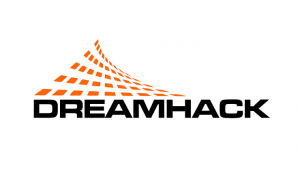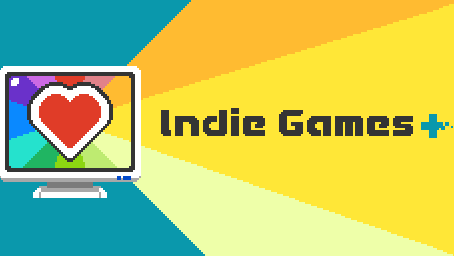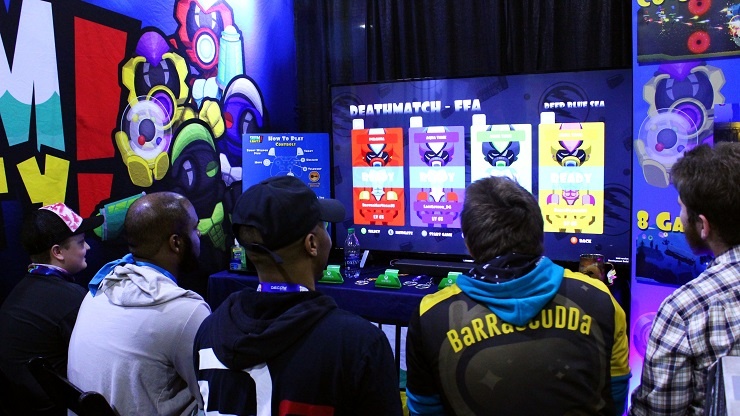The final part of our look at conventions offers some advice experienced developers have to offer to those coming to a show for the first time.
You can also read Part 1, Part 2, and Part 3 of the Making the Most of My Convention Experience series.
For starters, things often take far more time to set up than you might expect. “What we learned out on our own and through work with large companies is that you should always give yourself more time than you think you need for set up. You’re bound to forget something so that extra time will let you figure out what to do next,” says Skandalakis.
If you manage keep yourself from getting frazzled before the show even starts, your next test will be keeping that energy up during the convention. “Positive mental energy,” says Jack. “When you are at your booth, if you want people to come in and check out what you have, you have to emanate positive energy. If you are tired or angry, your body language could tell people that you are tired or angry. I believe in vibes and energy, people aren’t going to draw towards angry and tired energy.
“If your energy comes off welcoming and you want to play games with them, then they will come. If you aren’t the outgoing type, try to at least find a volunteer who is and let them welcome people into your booth while you manage another part of the booth.”
Easier said than done, as positive energy is the hardest to maintain when things don’t work as planned, but you need to keep it together as best you can. The key is “to not panic when things go wrong (most times something always goes wrong). If the game freezes or a piece of your booth falls, just reboot/pick it up and keep moving. Don’t let that bring down your positive energy.”
For Skandalakis, keeping energy up means knowing when to ask for help. As a human being, simple needs such as bathroom runs, hunger, or just being tied up talking with one person can greatly hinder you, so having some extra hands is huge. “Don’t try to go it alone! You need someone to have your back when you need to go to the bathroom or when the booth is swamped. If it looks like there’s no one to talk to, people might pass your booth by. Furthermore, someone has to make a lunch run, and god forbid you leave the booth abandoned! Board games need a lot more hand-holding than video games when presenting them, so if you have a computer game, you may be able to sneak off if you’re lucky.”

Schumann has similar feelings. “Burnout is real. Make sure you take time for yourself during the convention. If you need to take a break, take a break. Hydrate, eat food, sleep. Take care of your body and mind while you’re there. Make sure you aren’t doing this all by yourself – take a friend or three so you all get to enjoy the convention, too.”
Extra helpers can free up your time, giving you the freedom to make contact with other exhibiting developers. You never know what advice or community you’ll find at a convention, but chances are high when surrounded by your peers. The game development community is an extremely supportive one, so talking with other developers can be a great boon, especially if you feel alone. “While on the show floor, meet other developers who are there. They can give you great advice, help brainstorm issues you might have, send people to your booth (and vice versa!), or help cross-promote your game on social. You also will likely continue to see them at future cons. The community is small, so make friends!”
Besides other developers, many members of the press as well as streamers attend conventions, something Davionne suggests trying to plan for. “Look into who’s going to be at the event too (press, devs, streamers. etc.) and try to contact them beforehand and invite them to check the game out. Twitter is great for this, but you can also try asking the organizers if they have a press registration list they can send you if possible. And above all else, have fun!”
“Go into the event with a strategy. Don’t look bored. Stay attentive. Smile. Greet people walking by; you never know who they might be. Take lots of photos. Use social media effectively. Expect dull periods. Expect your whole body to ache during and afterwards. Talk to people, players, and devs alike. Treat the event staff with respect, they might help you out in unexpected ways.”
Talking to people may not be easy, but it is very important if you choose to go through the effort of showing at a convention. “Really try to get in the mindset that you’re there to promote your game,” says Johnson. “Don’t be afraid to be pushy when it comes to giving out merch, signing people up for your mailing list, and moving people through quickly. If you move fast, you’ll be lucky to have a few hundred people play your game, which isn’t that many in the grand scheme of things. A good tweet can give you many more eyeballs on your game and for much less effort! Meatspace just isn’t that scalable, so make it count.”
Your passion for your game can help keep you going during this challenging time. “First and foremost, you’re there because you are passionate about your game. Use your love of your project to fuel you. It’s going to be a long one-four days and you’ll need that passion. Also, celebrate your success in showing! Not every game gets to show at a convention. Have fun enjoy and your time, because the con goers can tell if you’re there and you’re not enjoying it,” says Schumann.

Just because you’re pushing to talk to everyone with a smile doesn’t mean you have to tolerate them when they’re being hateful or mean on purpose. “I would also have a healthy concern for the type of people you will interacting with. If you feel unsafe in a situation, you should remove yourself from it. You’ll potentially be interacting with several thousand people, and not all people will be nice.”
Being able to remove yourself is not exactly easy if you’re the only person running your booth, but you should do what you can to have some plan in place should things become uncomfortable (like bringing multiple people). “For me, as a queer woman developer who is promoting a LGBT+ game, I was sure we were going to attract some unwanted attention, which we did,” says Schumann. “But it’s about having a game plan before the convention on what to do and how to handle it if it happens and knowing where the convention help is.”
You should also consider whether you game is a great fit for a convention in the first place. This is not a question of whether or not you can succeed in exhibiting, but a convention setting may dampen the experience (i.e. spiritual games relying on tranquility in the midst of a loud and bright convention hall) or at least make it more challenging than it’s worth.
“First question to ask is: ‘Do I have the right type of game for a convention?’ It’s a tough question to face, but conventions are loud, busy places, and definitely favor certain types of games over others. Flashy action games work well. Slow-paced, narrative games, or games that require a ton of explanation, are difficult,” says Johnson.
You can attempt to have some elements in place to help your game if it’s not typically something that does well on the show floor, though. “Know your genre and your audience,” says Schumann. “For us, Arcade Spirits is a narrative-heavy game. Narrative games are typically difficult to show because of all the sensory output, and it’s hard to concentrate. Make sure you give people options on how to digest your game. I offer bookmarks/business cards with info so they can try the demo at home in a quieter location.”
If you feel your game is a good fit, you need to choose how to best present it. This is even more important if you think a convention poses challenges to your genre. “If you can, try to reduce your game down to its best 10 minutes. The more self-descriptive, the better. There’s nothing harder than giving the same long-winded explanation of your intricate systems over and over again to 100 people the same day. You want to give people a quick, powerful impression that lets them quickly decide if it’s their type of game or not,” says Johnson.

Even when you get everything right, there will be players who don’t jive with your game; after all, you’re showing to hundreds of people. It may be that they don’t like the genre or they aren’t drawn in by your concept, and it can be hard, but you need to shrug it off and move on. As the old saying goes, you can’t please everybody (And, perhaps a good addendum would be, you don’t need to).
“Your game isn’t for everyone and you will get criticism that is negative,” says Skandalakis. “You can’t incorporate all feedback in your game (if you are looking for feedback). You can’t please everyone. For example, our game is a party board game. We had a strategy board gamer sit down to play with us. After one round, he provided us the feedback that the game needed to be at least an hour to two hours long to be fun. Our games were intentionally made to be 15-30 minutes for fun, light rounds. We were never going to please him. We smiled and thanked him for his feedback. You always have to be polite no matter what people say about your game. Expect the worst and you’ll be pleasantly surprised!”
There’s nothing wrong with merch, but make sure you go into it with eyes wide open. Extra costs and planning are setbacks when they don’t work out as hoped. “If you’re planning some merch for players to take away, you’ll want to think on how much more it will complicate an already-challenging time,” says Johnson. “Keep your merch super simple, a button and a card is plenty. Don’t try to sell merch either, as the tax headache and time involved just isn’t worth the $100 you might make. Also, don’t worry that you’re missing out on Pinny Arcade or what seem like a bunch of other cross-promotion opportunities. Those can all wait until a future convention.”
Returning to previously mentioned concerns about equipment, renting the tools you need from the convention center can make your life a whole lot easier. The steep costs can be well worth leaving your most valuable gear at home. “If you rent equipment directly from the show, you will save yourself a ton of headache. Yes, the prices are high, but trying to coordinate a shipment of TVs with the dock is a huge hassle and is also expensive. Don’t forget you can have smaller stuff shipped to FedEx and carry it into the show yourself,” says Johnson.
If you don’t already, plan to give players and press a place to go when they are finished with your game. “Make sure your website is all ready to go, especially with a presskit section.” says Johnson. “Have some business cards on you in case you are approached by publishers, platforms, or people looking for games to show at their own convention. We were invited to DreamHack specifically because we met the right guy at PAX, so you can definitely chain them together if you’re ready to take advantage of the opportunities that present themselves!”
And even if you get everything right, somehow, expect something to go wrong anyway. “Other healthy concerns are that things will come up which won’t work out and it’ll be out of your control, like an unexpected bug, a typo, or your business cards didn’t arrive on time. My greatest advice is to be flexible and adapt, instead of worrying about things you can’t change. If a player encounters a bug, write it down and thank them for play testing! If you forget something, don’t hesitate to ask a neighbor for help or go to the store to get the missing item,” says Schumann.
There is so much that goes into planning and running a successful booth, and while this advice and these experiences may not fully-encompass everything you may run into when you exhibit, they provide a snapshot of various concerns you will want to keep in mind.

Worthwhile Efforts
This all sounds exhausting, and may have you wondering if it will all be worth it in the end.
We asked the developers about the time they spent in Texas showing at DreamHack in 2018—a festival that offers a free booth to those who are chosen for the Indie Playground in their Expo—to hear about their experiences in a relatively new convention to North America. Through this, we wanted to see if they felt the experience was worthwhile.
For Edwin, it was a big boost to have players coming back to their game over and over again. “DreamHack was pretty cool. New faces coming up to play our game Cede. Some people came back for seconds and thirds which really made us glow inside!”
Schumann felt there was a ‘chill’ mood at the convention that allowed for better connections with developers and those who came to see the games. “Dreamhack is a conglomeration of eSports, artists alley, indie games, arcade, and concerts. It’s got a completely different feel from all other conventions I’ve been too, and that’s because it’s more like a nerd celebration. It’s main focus is still games, but it doesn’t exclude all other fun nerd avenues. And because of that, it’s more chill and laid back than other shows. Because of its relaxed atmosphere I was able to take to the time to really focus on each individual, and I was able to make friendships with other developers. It’s a great first showing experience, especially because the bigger shows can be overwhelming.”
“DreamHack was fast and loose, but a lot of fun,” says Johnson. “The group running the convention was super professional and saw to our needs right away. It was less crowded than other conventions, but that let us spend extra time with our fans.”
Not that less-crowded meant Johnson would receive less attention for their game. “We went to DreamHack with a specific goal of signing up 100 people for our alpha test and we blew right past that goal in the first day, so it was a big success in that regard!”

Davionne also saw some great benefits from showing, even with pre-show concerns that their game might not be a great fit for a loud show floor. “It was an amazing experience that was definitely worth it, but it was also a mismatch for the game itself (A small, intimate narrative pixel art RPG smack dab in the middle of a huge, e-sports focused event? Oof.). If I wasn’t able to attend for such a low price, I probably would’ve reconsidered it. I still had a great time and I’m still feeling the benefits of it to this day, though!”
Skandalakis was also pleasantly surprised despite some trepidation. DreamHack’s expansion from shows in Europe to shows in North America came with an expansion from centering on eSports to a festival encompassing the gaming lifestyle. A new twist on a 25-year-old event, it’s been a learning curve well worth the trust from developers eager to hop on the wagon. “We didn’t know what to expect from DreamHack since it had an audience that was quite different from other conferences that we had been to, primarily focused on esports. For a corporate parody party board game, we weren’t sure what to expect, but it was local for us, so we took a leap! There was a great group of people there and we made some amazing connections. We continued to grow our community and are so glad that we went.”
The developer also mentioned a feeling of safety at the convention. “One thing about DreamHack that was different than other cons is that security was very tight—likely due to the recent tragedy in Florida. It was a comfort to see the increased presence of patrols around the conference and know we were safe.”
Though many of these developers weren’t quite sure if the show was right for them at first, taking a bet and making the trip out to the show gave them a better feel for what audience to expect from the festival. Offering a great time with players and some valuable views for their titles, the show turned out to be an excellent experience for those involved.
While showing at conventions may be daunting and extremely taxing, it also offers some great chances for feedback and for players to see your game for the first time. It’s a chance to grow your audience, finding the players who didn’t know they were looking for you.

 Dive headfirst into the exhibiting experience by joining the Indie Playground at DreamHack Dallas this June. Selected games will receive a free booth in the Expo at a festival that encompasses everything gamer life from esports, to indie games, to midnight horror films.
Dive headfirst into the exhibiting experience by joining the Indie Playground at DreamHack Dallas this June. Selected games will receive a free booth in the Expo at a festival that encompasses everything gamer life from esports, to indie games, to midnight horror films.

